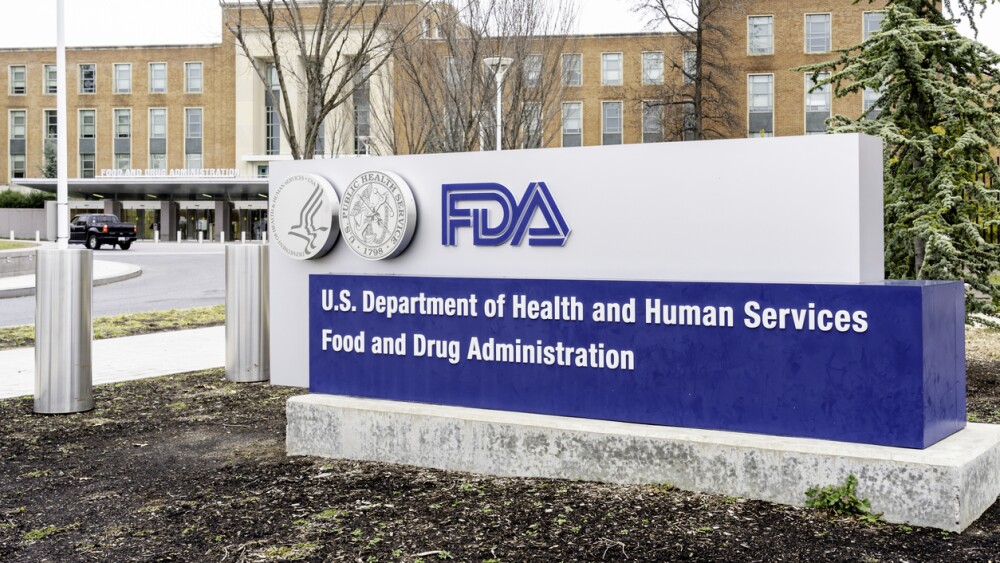CAMBRIDGE, Mass.--(BUSINESS WIRE)--Genzyme Corporation (Nasdaq: GENZ - News) announced today that its supplemental New Drug Application for Clolar® (clofarabine) will be discussed Tuesday, September 1 at a public meeting of the FDA’s Oncologic Drugs Advisory Committee in Silver Spring, Maryland. The panel is expected to consider the clinical trial results Genzyme submitted to support the approval and labeling of Clolar to treat older adult patients with acute myeloid leukemia (AML), the most common type of acute leukemia in adults. Clolar is currently approved for pediatric acute lymphoblastic leukemia (ALL) patients who have relapsed or have refractory disease after at least two prior regimens.
Genzyme’s supplemental NDA seeks approval for Clolar’s use as a single agent in previously untreated adults aged 60 or older with AML who have at least one unfavorable prognostic risk factor. Many older AML patients with unfavorable prognostic factors currently have poor treatment outcomes using currently available therapies for initial induction therapy. Clinical studies to optimize therapeutic approaches with existing agents have not resulted in improved outcomes in older adults with AML during the last three decades. The last induction therapy for newly diagnosed AML patients was approved in 1990. If approved, Clolar would fulfill an unmet need for this difficult to treat patient population.
“Most AML patients who are 60 years or older and have unfavorable prognostic factors do not receive conventional induction therapy because of the lower response rates and high treatment-related mortality,” said Mark Enyedy, president of Genzyme Oncology and Multiple Sclerosis. “The clofarabine data in this patient population demonstrate durable complete remissions with low treatment-related mortality and suggest that Clolar could provide an important new therapeutic option for these patients.”
Genzyme has submitted the results of its multi-center CLASSIC II pivotal study to support its label expansion filing. This single-arm Phase 2 study, which was based on the recommendations of a panel of AML experts, analyzed 112 adult AML patients aged 60 years and older with one or more unfavorable prognostic factors, including age 70 years or older, an antecedent hematologic disorder (AHD), poor performance status, or intermediate or unfavorable cytogenetics. As reported in peer-reviewed literature, these risk factors predict poor outcomes in older patients with conventional induction therapy.
The CLASSIC II study data exceeded the protocol-defined criterion for the trial’s primary end point: overall remission (OR). Patients receiving Clolar had a 45.5 percent OR rate, including a 37.5 percent complete remission rate (CR) and an eight percent complete remission rate with incomplete platelet recovery (CRp). Remission rates appeared consistent regardless of the type or number of unfavorable risk factors. The OR rate was 48 percent for patients (N=25) with one pre-defined risk factor, 51 percent for patients (N=45) with two risk factors, and 38 percent for patients (N=40) with three risk factors. Most patients who responded to treatment achieved remission after one cycle.
The study also found that Clolar remissions were durable. Durable complete remission has been accepted as an established surrogate for clinical benefit in patients with acute leukemias. The median duration of remission in overall responders (CR+CRp) was estimated as 51.6 weeks (12 months). The durability of remissions appeared similar regardless of age, AHD, poor cytogenetic profile, or number of unfavorable prognostic factors. The estimated median overall survival for all patients was 40.7 weeks (9 months), for responding patients was 59.1 weeks (14 months), and for patients who achieved CR was 65.3 weeks (15 months).
“Clolar demonstrates durable remissions and an acceptable safety profile in this older patient population,” said Harry P. Erba, M.D, Ph.D., University of Michigan, one of the co-principal investigators of the Classic II study. “These older patients with unfavorable risk factors are unlikely to benefit from currently available therapy and I am hopeful that Clolar will be approved in this new indication.”
The safety profile of Clolar was generally predictable and manageable. The all-cause induction 30-day mortality was 9.8 percent and was consistent regardless of the presence or number of unfavorable prognostic factors. The safety findings were consistent with those for the approved Clolar pediatric ALL indication. The most commonly occurring adverse reactions included nausea, vomiting, diarrhea, febrile neutropenia, rash, headache, fever, fatigue, hypokalemia, pneumonia, anorexia, pruritus, increased liver transaminases, neutropenia, thrombocytopenia, and mucosal inflammation.
The American Cancer Society estimates that approximately 12,810 people will be diagnosed with AML in the United States in 2009. About 70 percent of these patients will die from the disease, and almost all will be adults. The median age of a patient with AML is about 67 years. As an acute disease, AML progresses rapidly and is typically fatal within weeks or months if left untreated.
The Prescription Drug User Fee Act action date for Clolar in the adult AML indication has been extended to December 2009. The extension is based on a determination by the FDA that additional long-term follow-up data sets, submitted as a supplement to the original application, represents a major amendment and requires additional review time. The additional long-term data sets support, and are consistent with, findings previously observed in the CLASSIC II trial.
For more information on the panel please visit the FDA web site.
About Clolar
Clolar has Orphan Drug designation for adult and pediatric ALL, and seven years of market exclusivity in the United States for relapsed/refractory pediatric ALL. The FDA also granted six months of extended market exclusivity to Clolar under the Best Pharmaceuticals for Children Act.
Clolar should be administered under the supervision of a qualified physician experienced in the use of antineoplastic therapy. Suppression of bone marrow function, which is usually reversible and dose dependent, should be anticipated and is likely to increase the risk of infection, including severe sepsis.
Administration of Clolar results in a rapid reduction of peripheral leukemia cells. Patients should be evaluated and monitored for signs and symptoms of tumor lysis syndrome and cytokine release (e.g., tachypnea, tachycardia, hypotension, pulmonary edema) that could develop into systemic inflammatory response syndrome (SIRS), capillary leak syndrome, or organ dysfunction. Clolar should be discontinued immediately in the event of clinically significant signs or symptoms of SIRS or capillary leak syndrome, either of which can be fatal. The use of prophylactic steroids may be of benefit in preventing signs and symptoms of cytokine release.
The most common side effects seen after Clolar treatment, regardless of causality, were gastrointestinal tract symptoms, including vomiting, nausea, and diarrhea; hematologic effects, including anemia, leukopenia, thrombocytopenia, neutropenia, and febrile neutropenia; and infection.
Liver and kidney function should be assessed prior to and during treatment with Clolar, as the liver is a target organ for Clolar toxicity and Clolar is excreted primarily through the kidneys. Concomitant use of medications known to induce hepatic or renal toxicity should be avoided.
Clolar may cause fetal harm when administered to a pregnant woman. Women of childbearing potential should be advised to avoid becoming pregnant and avoid breast feeding while receiving treatment with Clolar.
For more information about Clolar, please call 1-800-RX CLOLAR or visit www.CLOLAR.com.
About Genzyme
One of the world's leading biotechnology companies, Genzyme is dedicated to making a major positive impact on the lives of people with serious diseases. Since 1981, the company has grown from a small start-up to a diversified enterprise with more than 11,000 employees in locations spanning the globe and 2008 revenues of $4.6 billion.
With many established products and services helping patients in nearly 100 countries, Genzyme is a leader in the effort to develop and apply the most advanced technologies in the life sciences. The company's products and services are focused on rare inherited disorders, kidney disease, orthopaedics, cancer, transplant and immune disease, and diagnostic testing. Genzyme's commitment to innovation continues today with a substantial development program focused on these fields, as well as cardiovascular disease, neurodegenerative diseases, and other areas of unmet medical need.
This press release contains forward-looking statements regarding Genzyme’s business plans and strategies, including without limitation: its expectations regarding receipt of FDA approval of Clolar to treat older adult patients with acute myeloid leukemia and the timing thereof; and its expectations regarding the content of the discussions at the Advisory Committee meeting. These risks and uncertainties include, among others: Genzyme's ability to actually obtain FDA approval of Clolar to treat older adult patients with acute myeloid leukemia; that the Advisory Committee meeting is not positive or focuses on content different than what the Company anticipates; and the risks and uncertainties described in Genzyme's SEC reports filed under the Securities Exchange Act of 1934, including the factors discussed under the caption "Risk Factors" in Genzyme's Quarterly Report on Form 10Q for the quarter ended June 30, 2009. Genzyme cautions investors not to place substantial reliance on the forward-looking statements contained in this press release. These statements speak only as of today’s date and Genzyme undertakes no obligation to update or revise the statements.
Genzyme® and Clolar® are registered trademarks of Genzyme Corporation or its subsidiaries. All rights reserved.
Genzyme’s press releases and other company information are available at www.genzyme.com and by calling Genzyme’s investor information line at 1-800-905-4369 within the United States or 1-678-999-4572 outside the United States.
Contact:
Genzyme Corporation Media Contact: John Lacey, 617-768-6690 857-222-8589 (mobile) john.lacey@genzyme.com or Investor Contact: Patrick Flanigan, 617-768-6563 patrick.flanigan@genzyme.com




